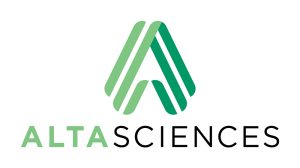Navigating the yellow brick road: practical approaches to conducting early phase clinical trials with psychedelics
Psychedelic interventions are currently being evaluated in clinical trials for a number of medical indications, ranging from drug use disorders to various mental health conditions. Most clinical development programs require preliminary clinical trials to determine pharmacokinetic and safety profiles prior to larger patient trials.
Early phase clinical trials can cover a wide range of objectives, including the early pharmacodynamic exploration of effectivness, bioavailaibility and elimination as well as important safety parameters like effects on QT prolongation, cognition, drug-drug interactions, food effects and dose-response characterization. Many of these important drug characterization studies can be done in a more cost-effective fashion with healthy volunteers, or with volunteers with past recreational drug experience. Such populations have fewer confounders, for example, comorbidities or concomitant medications that can interfere with some measures on study’s outcomes.
The administration of psychedelics in healthy subjects requires highly trained staff and facilitators specifically trained to identify and manage adverse events. However, when such trials are conducted in a confined clincial setting with around-the-clock subject supervision, efficient adaptations can be considered to ensure a safe and efficient clinical approach.
What will you learn?
- Determine the type of early-phase clinical studies that you may need to consider for your psychedelic drug development program
- Discover efficient clinical trial approaches that can accelerate your development timeline while meeting regulatory requirements
- Identify key features of a clinical trial site that are critical to the success of your study
Who may this interest?
- Executives
- Investors
- Staff of pharmaceutical companies and startups developing psychedelics intended for regulatory submission.
Panelists

Beatrice Setnik, PhD
Chief Scientific Officer
Altasciences
Beatrice Sentik is currently the Chief Scientific Officer at Altascience (Laval, Canada) and Adjunct Professor at the University of Toronto (Canada) and has been working in clinical drug development and abuse potential since graduating with a doctorate degree in pharmacology in 2005.
During her studies, Sentik completed the Collaborative Program in Neuroscience. She has published numerous research articles in internationally known peer-reviewed journals and is a recognized expert in the field of human abuse and physical dependence potential evaluation.

Denise Milovan, PhD
Senior Neuroscientist, Neuropsychologist
Altasciences
Denise Milovan joined Altascience in 2020, having worked as a neuroscientist at Syneos Health (previously known as INC Research; NC, USA) and DecisionLine Clinical Research (Toronto, Canada). At Altascience, Milovan provides expertise and oversight of neurocognitive early-phase programs dedicated to the assessment of the pharmacodynamic effects of CNS drugs.
Milovan holds a master’s degree and PhD in clinical neuropsychology, and practices in a variety of settings including hospitals, non-profit organizations and private practice. She is currently the Vice President of the Council of the College of Psychologists of Ontario (Canada).
This webinar was recorded on Tuesday 29th November 2022
